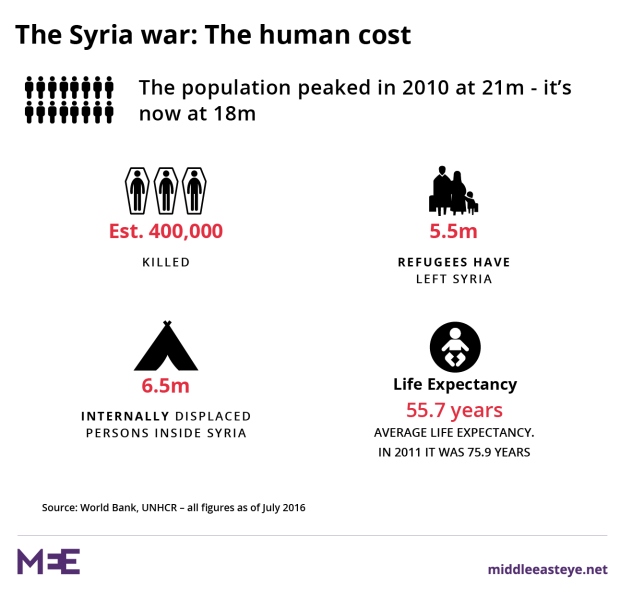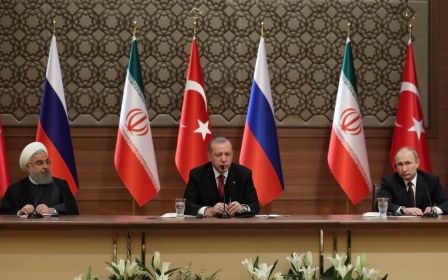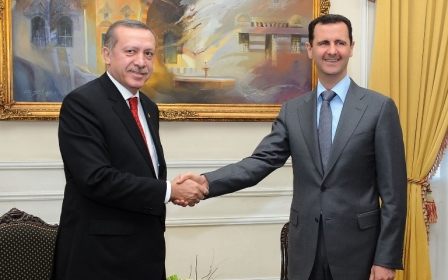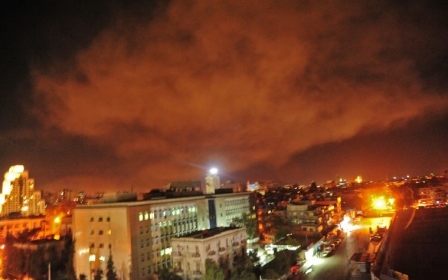How long will the world keep living with the Syrian crisis?
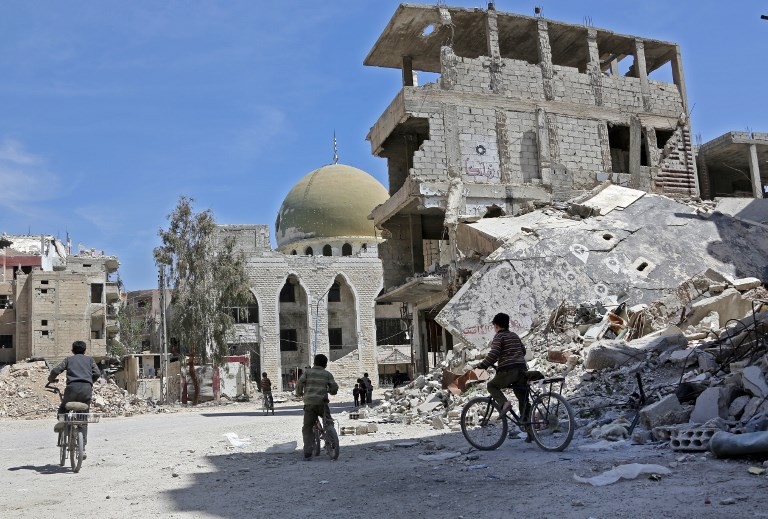
A single question, vital for the Middle East and crucial for the world, hangs over the years ahead: can we continue to live with the Syrian crisis?
Just as this question has thus far been left unanswered, there have been no sincere, comprehensive regional or global efforts to solve the crisis. A comprehensive perspective that goes beyond "counterterrorism", "chemical disarmament" and "deconfliction" has been non-existent. This has allowed Syrian President Bashar al-Assad to continue to commit atrocities under the protective wings of Russia and Iran, amid total Western indifference.
The ‘internet of crises’
At this point, both Syria and the entire world have been buried in the debris of the worst human tragedy of the 21st century. Neither zealous supporters of Assad nor those oblivious to ongoing mass atrocities have the capacity to generate a vision for Syria's future.
Actors who have military power, but lack a vision, only aggravate the chaos in Syria. Others with limited military and economic powers, who confuse their own sectarian hallucinations with a vision, only cause the crisis to expand beyond Syria's borders. Meanwhile, the quasi-states and armed organisations with neither military capacity nor a vision have provided a buffer zone where terrorism continues to flourish.
For those who seek to keep Assad in power, the mission is as desperate an attempt as investing in a junk bond
In 2018, all problems and conflicts have the potential to infect the entire global political system. Today, there is no crisis that we can ignore. Like the "internet of things", global politics is experiencing the "internet of crises". In our age of networks, every crisis that initially appears isolated may become a virus, fast travelling from one place to another.
The grievance of a street vendor in Tunisia may first become a local problem, then national, and then a full-blown regional crisis. The place of origin of many problems may only reveal the first stop of a far larger crisis coming full steam ahead.
At the centre of the chaotic uncertainty of our times lies Syria. This grave crisis is affecting the entire world. To understand how distinct it is, one needs only to consider how this single crisis has pitted the US against Russia, escalated tensions between the Gulf and Iran, and exported terrorism and migration to Europe and Turkey simultaneously. And yet, as with the subprime mortgage catastrophe a decade ago, global and regional actors have avoided taking genuine steps to stop it.
Clinging to power
No side is a winner in the Syrian conflict. Some may delude themselves into maintaining that Assad and his supporters are winning at the expense of murdering more than half a million people, and say the revolutionaries are losing. They could be right, if they consider the survival of Assad after killing hundreds of thousands of people to be "winning".
Yet, they still have to explain how they think Assad can continue to rule Syria hereafter. Millions of Syrians have fled the country or been internally displaced, and those who remain get almost none of the rudimentary services expected from a central government. Assad's clinging to power means only two things: perpetuation of war and ruling Syria without Syrians.
Assad's continued rule is a practical impossibility. Methods like those employed in the Chechnya crisis will only guarantee a bigger ripple effect, and a Lebanese-style model for power distribution will only invite more proxy fights.Assad's supporters surely only want him to stay in power because they have not developed any vision for a new order. In this period of chaotic uncertainty, Syria is nothing more than a bargaining chip.
For those who seek to keep Assad in power, the mission is as desperate an attempt as investing in a junk bond. For the Baath regime, every inch of territory restored to their control adds more to their financial toll, in addition to the heavy costs of war.
The economic burden also weighs heavily on regimes that seek to prop up Assad but are themselves under international sanctions. Their bitter dilemma neither allows them to get rid of the junk bond (Assad) nor to make a new and more promising investment.
The role of the EU
The EU, which deems the crisis a problem of terrorism and migration, suffers from geopolitical paralysis. Other than the punctuated fight against terrorism and the refugee deal signed with Turkey upon the latter's proposal, the EU has failed to offer a proactive perspective to resolve the Syrian crisis.
While the EU may believe these two initiatives will allow it to live with the crisis, it should realise that a primary way to keep itself relevant as an effective global political actor in the wake of Brexit would be to play a constructive role in this region with a bloody colonial past.
The EU first squandered this precious opportunity in Egypt, and it is doing it again in Syria. It chose to invest in a crisis that will continue for decades, in return for the short-term benefits of maintaining the regional status quo built on the wreckage of World War One. It failed to understand that as long as the status quo continues, the problems of "migration and terrorism" will just grow.
Although the US opened Pandora's box by invading Iraq, it avoided taking geopolitical or ethical responsibility. The contorted regional order first built by the Europeans in Mesopotamia after WWI was later updated in an Israeli-centric fashion by the US.
The US is far from developing a consistent and serious perspective on the regional status quo, for which millions of lives have been sacrificed. Worse, under President Donald Trump, the American geopolitical mind is afflicted with a level of Islamophobia that puts Israel's fanaticism to shame.
As a result, none of the actors involved in the Syrian crisis have offered any solution. All we have heard are various scenarios without Syrians, or plans for Syria that do not actually speak of Syria.
When a crisis that began with the murder of children in Daraa was able to convulse the entire world within a few years, the idea that the international community can allow it to continue after the worst massacre of the 21th century is sheer folly and geopolitical shortsightedness.
- Taha Ozhan is a member of the Turkish parliament and a former chairman of its foreign affairs committee. He is an academic and writer and holds a PhD in politics and international relations. He frequently comments and writes for international media. His latest book is: Turkey and the Crisis of Sykes-Picot Order (2015).
The views expressed in this article belong to the author and do not necessarily reflect the editorial policy of Middle East Eye.
Photo: Syrian children ride past destroyed buildings in the former rebel-held town of Zamalka, in Eastern Ghouta, on 5 April 2018 (AFP)
Middle East Eye propose une couverture et une analyse indépendantes et incomparables du Moyen-Orient, de l’Afrique du Nord et d’autres régions du monde. Pour en savoir plus sur la reprise de ce contenu et les frais qui s’appliquent, veuillez remplir ce formulaire [en anglais]. Pour en savoir plus sur MEE, cliquez ici [en anglais].



